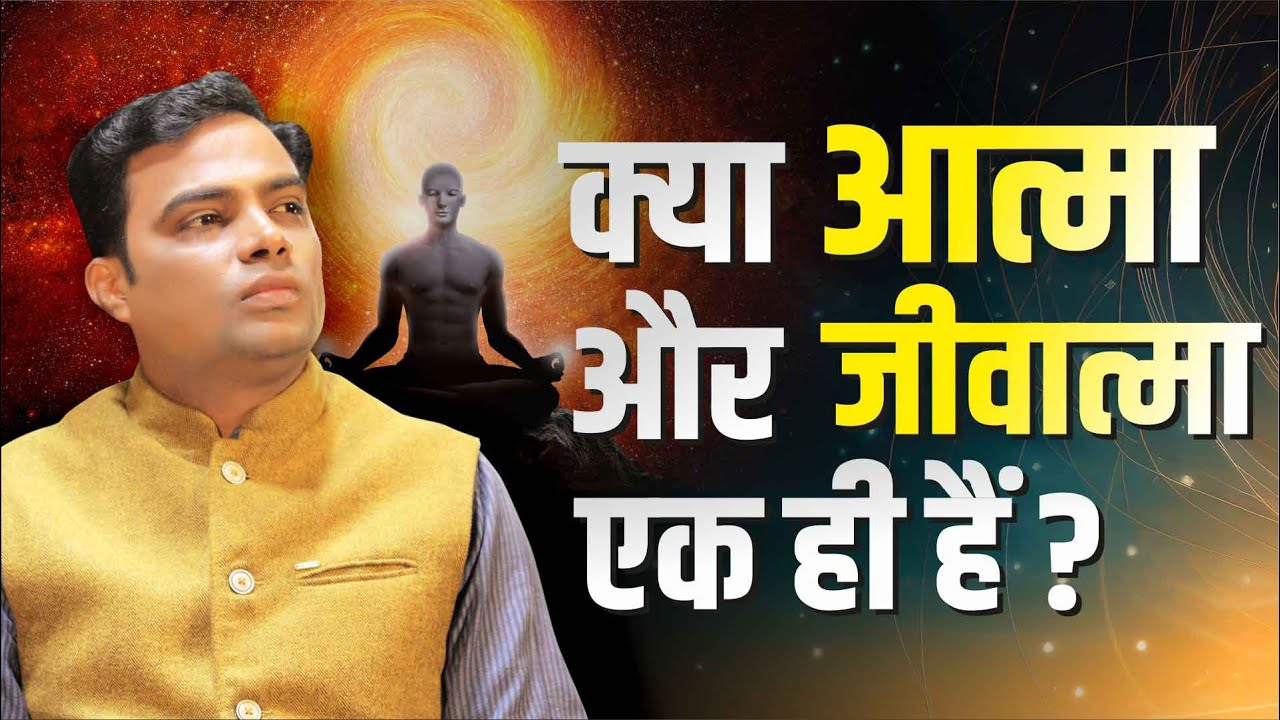 MENU
MENU
 MENU
MENU

On the journey of life, we often ask questions that go beyond the physical world. One such deep question, asked by an expectant mother, was:
✨ “What is the difference between Atma (आत्मा) and Jivatma (जीवात्मा)?”
This question touches the very heart of spirituality. Let’s understand it in the simplest way.
Think of the soul and the body as two separate things.
Atma (आत्मा) is the pure soul—eternal, divine, and free. It is a part of God (Ishwar ka ansh). Atma itself does not have any physical form. It is timeless and beyond change.
Jivatma (जीवात्मा) is the same Atma when it enters a body. The moment the soul resides in a living being, it is called Jivatma—the “embodied soul.”
✨ In short:
Atma + Body = Jivatma
The soul doesn’t change, but its role does—depending on whether it is connected to a body or not.
The Bhagavad Gita explains: just as we change old clothes for new ones, the soul leaves one body and enters another.
While inside the body → it is called Jivatma.
When it leaves the body at death → it is the eternal Atma.
The essence is the same, only its association with the body changes the name.
For an expectant mother, this is the most beautiful example.
A baby’s body and heartbeat may form early, but only when the Atma enters does it become a Jivatma.
Before entering the womb → it is simply Atma.
After entering the baby’s body → it becomes Jivatma, ready to begin its earthly journey.
The soul never changes—it is always eternal.
Atma → the universal, free, pure soul.
Jivatma → the same soul living inside a body, experiencing life, emotions, and actions.
So, while our bodies are temporary, the Atma within us is everlasting—a divine spark connected to something much greater than ourselves.
✨ In simple words:
Atma is the pure energy.
Jivatma is that same energy living as “you” in this body.
Understanding this truth helps us value life more deeply and reminds us that though bodies may change, the soul is forever.


